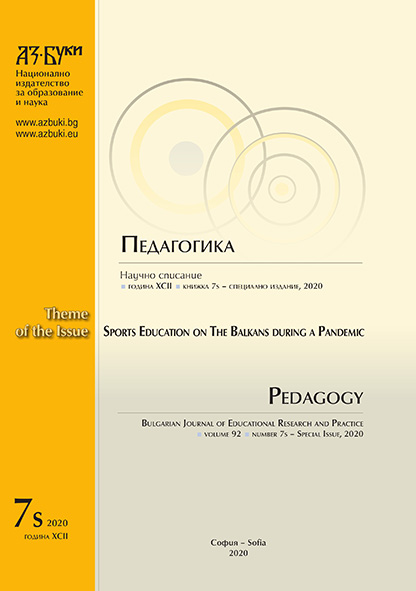Master’s Program High Performance Sport E-Learning during COVID-19 Pandemic
Master’s Program High Performance Sport E-Learning during COVID-19 Pandemic
Author(s): Daniela Dasheva, Hristo Andonov, Liliya DonchevaSubject(s): Social Sciences, Education, Vocational Education, Adult Education, Higher Education , State/Government and Education, Inclusive Education / Inclusion
Published by: Национално издателство за образование и наука „Аз-буки“
Keywords: education methods; evaluation; problems; opportunities; sport
Summary/Abstract: The COVID-19 pandemic put to the test the learning process in master’s degree High Performance Sport. An urgent reorganization of both the theoretical and the sports modules was made. The main problems were what online platforms or tools of communication to be used and how effective this learning would be. Over the last few decades, online learning in higher education has been studied extensively. The aim of this research was to examine the efficacy of the E-learning in Master program High Performance Sport during COVID-19 pandemic. The main research method used was observation study where the researcher becomes part of the group to be observed. The sample consisted of 92 cases. Sixteen theoretical modules were included together with some of the specialized subjects such as Conditioning, Basketball, Volleyball, Tourism and Orienteering, Biathlon, Tennis, Table Tennis, Weightlifting, Wrestling and Rhythmic Gymnastics. The math-statistical analysis of the data included frequencies and cross tabulation statistics. The software package used to analyse the data was IBM SPSS software platform version 23. The results showed that emails and distance studies platform ww.virtual.nsa.bg were the most often used online platforms or tools for communication. The cross tabulation showed that the theoretical modules were taught mostly through virtual platform (79.2%) and Viber (74.4%) although the professors teaching specialized sports subjects predominantly used email communication (57.9%) or other social online platforms (62.5%). This work provides an overview of the extent to which blended education has been highlighted by the pandemic. It helps understand the challenges lecturers may face in the new Internet era in relation to designing applicable materials and using non-standard learning methods to support students and education as a whole. We will have to rethink the very nature of sport and sports education. Perhaps this is a chance for a new beginning.
Journal: Педагогика
- Issue Year: 92/2020
- Issue No: 7s
- Page Range: 9-16
- Page Count: 8
- Language: English
- Content File-PDF

